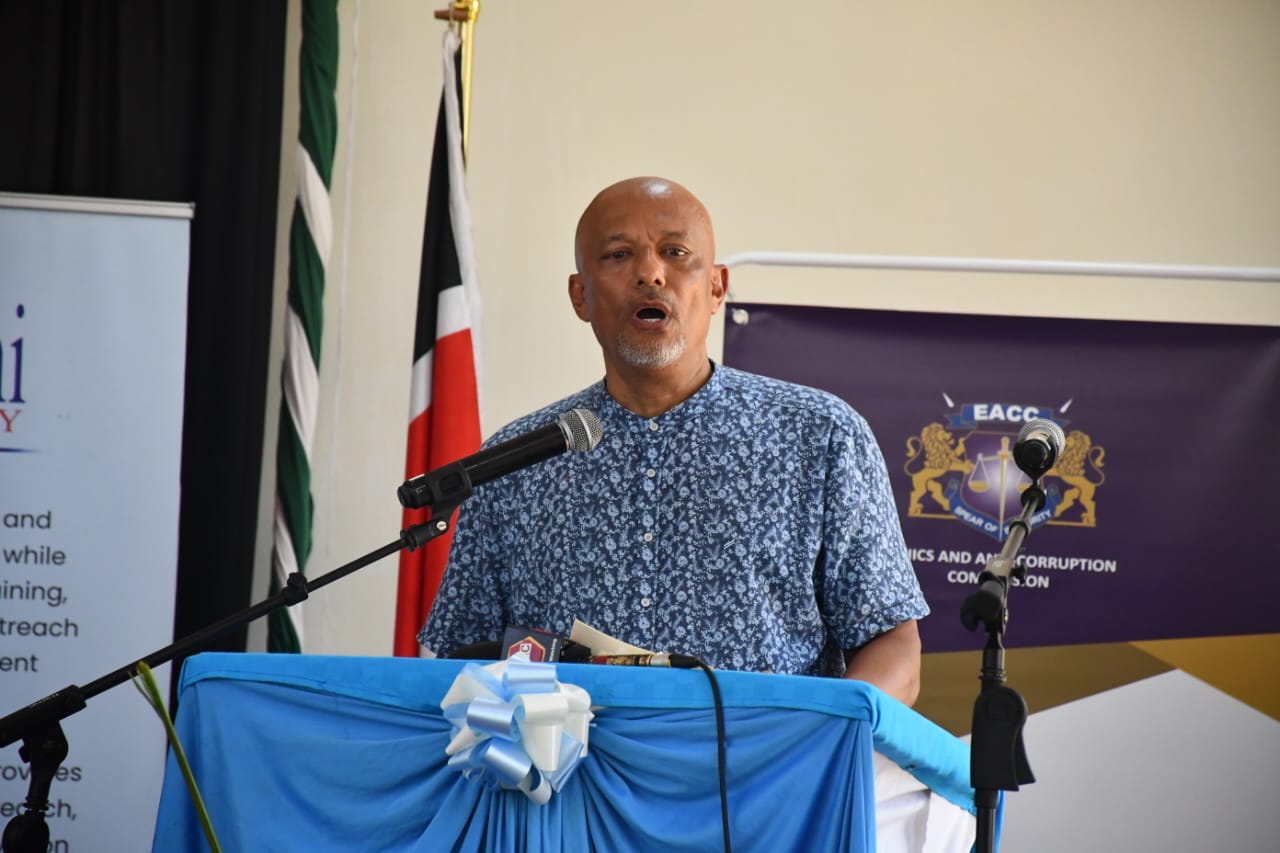EACC faults courts for surge in corruption cases, says 214 pending in court

The EACC reported that a staggering 214 cases related to corruption, economic crimes, and unethical conduct remain unresolved in the courts.
The Ethics and Anti-Corruption Commission (EACC) has blamed the courts for a notable increase in corruption cases, citing failure to resolve pending ones.
During the launch of the annual report for the financial year 2022–23 at its Integrity Centre headquarters on Tuesday, the EACC reported that a staggering 214 cases related to corruption, economic crimes, and unethical conduct remain unresolved in the courts.
More To Read
- EACC moves to recover Sh250 million public land in Kahawa Sukari
- Evans Kidero, nine others acquitted in Sh213 million corruption case
- EACC raids homes, offices of senior Sports officials over Sh3 billion graft claims
- National Assembly dismisses viral letter on Cabinet vetting as fake
- Funding shortage puts EACC’s anti-graft war at risk- Auditor General
- Nyamira Governor Amos Nyaribo, officials targeted in EACC corruption sweep
The report says that 97 case files have been submitted to the Director of Public Prosecution (DPP) for assessment.
In his address, EACC Chief Executive Officer Twalib Mbarak expressed concern over handling of minor corruption cases, citing instances where they are referred to the DPP instead of being handled in court.
“When we forward instances of minor corruption, such as a police officer or a local chief accepting a bribe of Sh1,000, to the DPP, the DPP often responds by stating that due to a backlog, this is considered a minor case and asks if it can be handled administratively," Twalib explained.
"Similarly, when brought to the attention of the police, they claim that there are no specific laws indicating that when a police officer accepts Sh2000, it should be dealt with administratively. They further state that they cannot dismiss an officer unless they have been prosecuted. We are moving in circles. These issues need to be brainstormed and rectified."
The report revealed that bribery, embezzlement, and fraudulent acquisition of public property are the prevailing forms of corruption at the rates of 31 per cent, 19 per cent and 12 per cent, respectively.
The EACC, however, noted successful efforts in tracking illegally acquired and unexplained assets, valued at Sh6.63 billion, between 2022 and 2023. Thus far, Sh3.8 billion has been recovered.
The report has also highlighted the commission's proactive legal actions, with 62 recovery suits filed, with a total value of Sh8.7 billion. Further, through rigorous court proceedings and out-of-court settlements, assets worth Sh3.8 billion have been reclaimed.
Regarding laws, the authority recommended changes to the Anti-Corruption and Economic Crimes Act of 2003 and the Ethics and Anti-Corruption Commission Act of 2011, to bar those charged with corruption from office and prevent witness interference.
Twalib noted that this would give the EACC a full mandate to prevent corrupt leaders from serving in public offices.
“The commission recommends amendments to the Anti-Corruption and Economic Crimes Act to make it clear that a person charged with corruption and unethical conduct will be barred from accessing their offices to [prevent] them from interfering with witnesses and evidence,’’ he said.
EACC chairperson David Oginde said the commission has had difficulties looking into corruption claims against public officials as they use their positions of authority to obstruct their detention and the investigation process.
“When a person is still in office, they have power because they can deny you access to particular documents and interviews with individuals [and can engage in] intimidation, which has put the lives of our officers in serious danger,” Oginde said.
The commission also called for amendments to the Leadership and Integrity Act of 2012 and the development of model procedures for preventing corruption and bribery.
It said the guidelines will help prevent corruption and bribery for public and private entities in conjunction with the Anti-Bribery Act of 2016 and the Anti-Bribery Regulations of 2022.
Top Stories Today














































